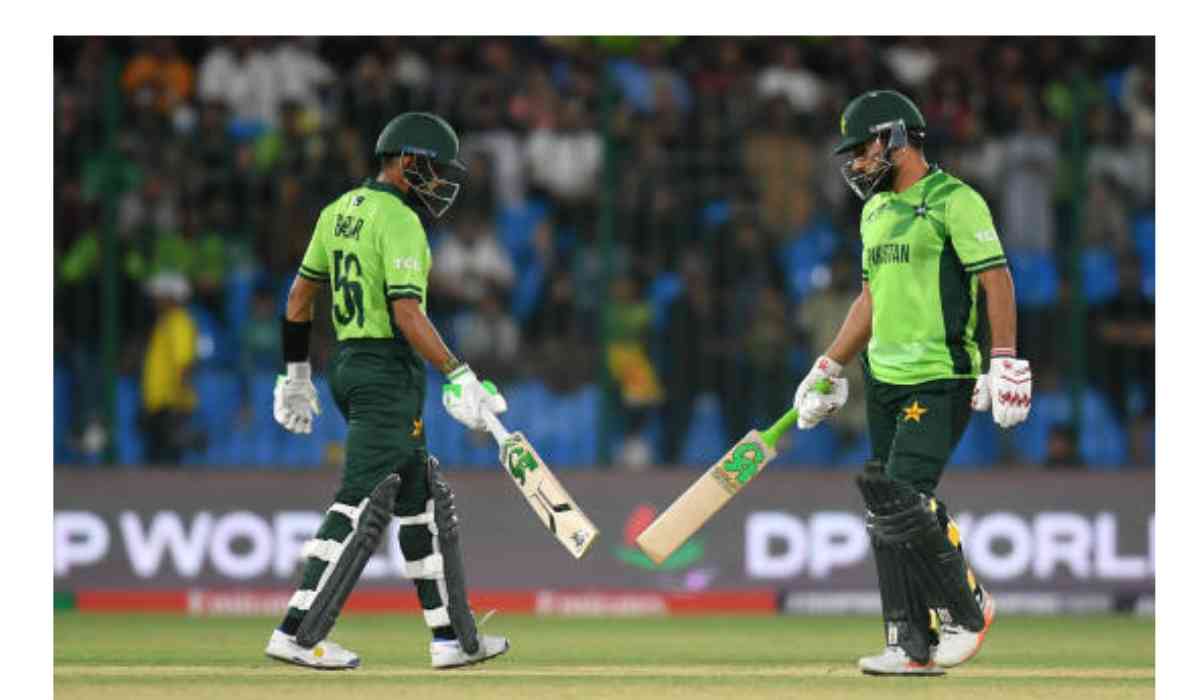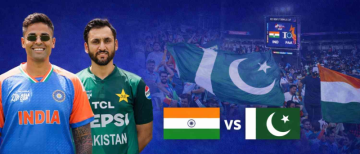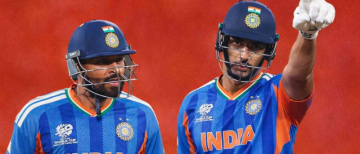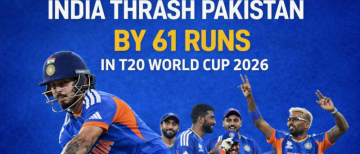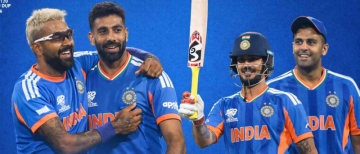Pakistan's Challenges in Champions Trophy Opener:
A Sign of Evolving Cricket Dynamics In the opening match of the ICC Champions Trophy 2025, Pakistan's cricket team faced a tough defeat against New Zealand, losing by 60 runs at Karachi’s National Stadium. New Zealand set a daunting target of 320/5, bolstered by impressive centuries from Will Young (107) and Tom Latham (118*), which proved too steep for the Pakistani squad. In response, Pakistan could only muster 260 runs, with captain Babar Azam contributing a steady yet sluggish 64 off 90 balls. This match highlighted the ongoing clash between traditional cricketing strategies and the fast-paced demands of modern limited-overs formats.
Fan Reactions: A Mix of Disappointment and Hope
The defeat ignited a swift reaction from the Pakistani cricket community, particularly on social media, where fans expressed their frustration with Babar Azam’s batting style. Many felt that his lack of urgency mirrored a larger issue with Pakistan's chase. Social media users labeled his innings as “selfish” and “unnecessary,” criticizing his decision to stabilize the innings while the required run rate soared. While fans recognized his technical skills, there was a clear expectation for a more aggressive approach, especially given the high stakes of the match. However, the discussion extends beyond individual performances; it reflects a deeper struggle within Pakistan cricket. The debate centers on whether Babar’s strategy was a necessary tactic or a critical error that led to the team's defeat.
Expert Insights:
The Language of Contemporary Cricket Former cricketers such as Waqar Younis and Wasim Akram were quick to voice their disapproval of Babar Azam’s tactics, with Akram stating, “It’s not acceptable in today’s game.” Their critiques highlight the shifting expectations surrounding limited-overs cricket.
The Contemporary Game: The Clash of Tactics and Modern

Trends In today's cricket landscape, success hinges on a blend of technical prowess and a bold, aggressive approach. Merely being a technically proficient player is no longer sufficient. Athletes must be versatile, driving the game forward by hitting boundaries and increasing the scoring tempo. Icons like Virat Kohli and Kane Williamson exemplify this balance, merging controlled aggression with strategic insight.
Babar Azam, while undeniably gifted, must rise to the occasion and adapt his style to keep pace with the fast-evolving ODI format. For Pakistan, this defeat could act as a crucial turning point for reflection. As the game transforms at a rapid pace, a shift in mindset is essential. While anchoring an innings remains vital, it should not compromise the ability to chase down large targets effectively. The responsibility lies not only with Babar but with the entire squad, especially the middle-order batsmen, to adjust their strategies and restore equilibrium to a batting lineup that is starting to stagnate.
The Challenge of Pursuing High Totals: A Persistent Issue for Pakistan
The challenge of pursuing high totals has emerged as a persistent issue for Pakistan, particularly highlighted by their defeat in the Champions Trophy. Whether competing in ICC tournaments or bilateral series, the team frequently encounters obstacles when attempting to chase targets exceeding 300 runs a threshold that many top teams handle with ease. This has sparked significant concerns about Pakistan's capacity to build effective partnerships during the middle overs while keeping up with the required run rate. In contrast to teams boasting a lineup of power-hitters in the middle order, players who can change the game at any moment—Pakistan has found it difficult to achieve that crucial balance. The lack of a reliable, explosive middle-order batsman has often resulted in Pakistan's chases either collapsing or falling short of what is needed.
Looking Forward: Can Pakistan's Setup Expand Its Potential?

The defeat against New Zealand in the Champions Trophy may be a disappointment, but it also presents Pakistan with a chance to reevaluate their approach for the future. The squad is brimming with talent, featuring standout players like Shaheen Shah Afridi, Shadab Khan, and Babar Azam, who are not only capable of excelling on the international stage but are also seen as the future cornerstones of Pakistan cricket.
Yet, raw talent is just the beginning. A significant shift in strategy, particularly in mindset, could be vital for Pakistan's ongoing development in limited-overs cricket. This might involve encouraging players to embrace risk-taking, even in high-pressure situations, and fostering a culture of flexibility. Moreover, the importance of mentorship cannot be overstated.
Emerging players must learn from those who have successfully navigated the challenges of international cricket and grasp the evolving strategies necessary for success. In the competitive landscape of limited-overs cricket, players are expected to not only master technical skills but also excel in high-stakes, fast-paced environments. For Pakistan, adapting to these demands is crucial—not just for immediate victories but for establishing themselves among the elite teams in global cricket.
With inputs from agencies
Image Source: Multiple agencies
*The views expressed are personal to the author and do not reflect the platform's opinion of the same.
© Copyright 2024. All Rights Reserved Powered by Vygr Media.
Author's profile:
Arhan Ali is a sharp observer of economic and political currents, known for blending keen analysis with a dash of wit. Whether dissecting global trade wars or taking a playful jab at social absurdities, his writing strikes the perfect balance between intellect and irreverence.

